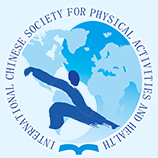Document Type
Abstract
Keywords
institutional work, collegiate administrations, interviews, winter sports
Publication Date
2-2023
Abstract
After winning the right to host the 2022 Winter Olympics, ice hockey has become more popular in colleges in China. However, the challenges to college hockey’s development in China are not surprising as new markets tend to experience struggles due to the fluidity of logics (Thornton & Ocasio, 2008) and issues of establishing legitimacy (Deephouse & Suchman, 2008). Considering this, those hoping to establish new sport institutions within untapped contexts are burdened with the arduous task of simultaneously creating and maintaining institutional structures while working to establish legitimacy (Washington, 2004). In this study, we draw from the concept of institutional work to understand how Chinese collegiate administrations and other relevant stakeholders have created, built, and sustained the emergent ice hockey environment for universities in China. This inquiry was guided by the following research questions: what factors at various institutional levels influenced the development of college ice hockey in China? How did institutional leaders utilize Beijing 2022 Winter Olympics to leverage the development of college ice hockey? To answer these questions, we employed qualitative case study methodology. Primary data were collected through 18 semi-structured interviews with university faculty, student athletes, and administrative officials. Secondary data were collected via archived documents from numerous sources. Data analysis was consistent with the Gioia methodology, wherein we identified first-order concepts, second-order themes, and aggregate theoretical dimensions (Gioia, Corley, & Hamilton, 2012). Preliminary findings suggest the development of college ice hockey in China has framed the development model with opportunities and multiple resources. Organizing capability, the hockey infrastructure, and legitimating issues impacted the development of college ice hockey. The 2022 Winter Olympics is a good opportunity for developing college ice hockey and it is bringing in additional funding and support to college hockey teams and athletes. The development of college ice hockey in China always combines with nationalism, and some student athletes also represent the national team for China. In addition, youth ice hockey development in Beijing and Heilongjiang is providing ice hockey talents for the college hockey teams around China. College ice hockey in China was facing challenges in an environment from different institutional logic orders. This study provides insights into the relationship among the nationalism, Olympics, and the development of winter sport in college. Additionally, this research outlined how public and private actors may work to create new governance structures that may be seen as legitimate.
DOI
https://doi.org/10.18122/ijpah.020125.boisestate
Recommended Citation
Li, Hongxin and Bai, Yunchao
(2023)
"The Development of College Ice Hockey in China: Leveraging the Success for Beijing 2022,"
International Journal of Physical Activity and Health: Vol. 2:
Iss.
1, Article 25.
DOI: https://doi.org/10.18122/ijpah.020125.boisestate
Available at:
https://scholarworks.boisestate.edu/ijpah/vol2/iss1/25
Included in
Exercise Science Commons, Health and Physical Education Commons, Public Health Commons, Sports Studies Commons


